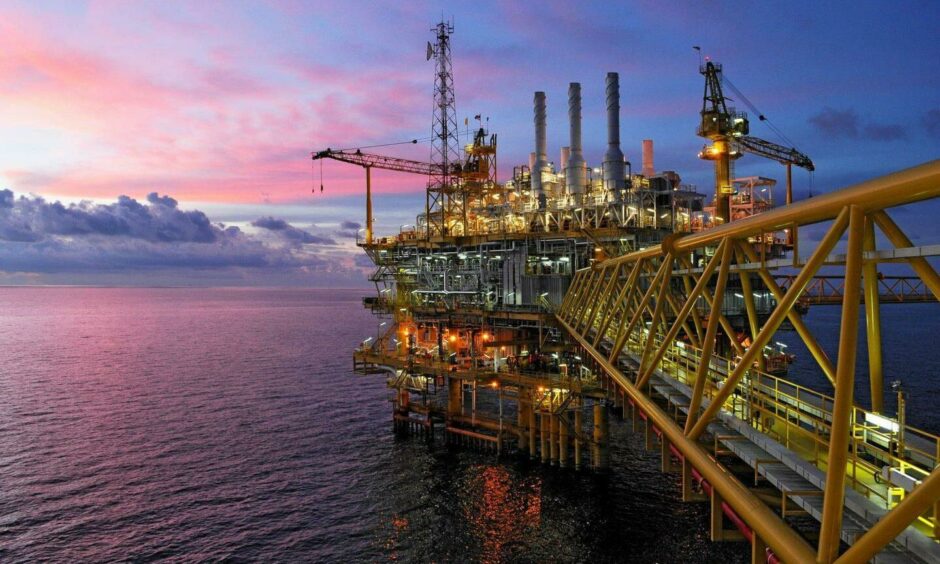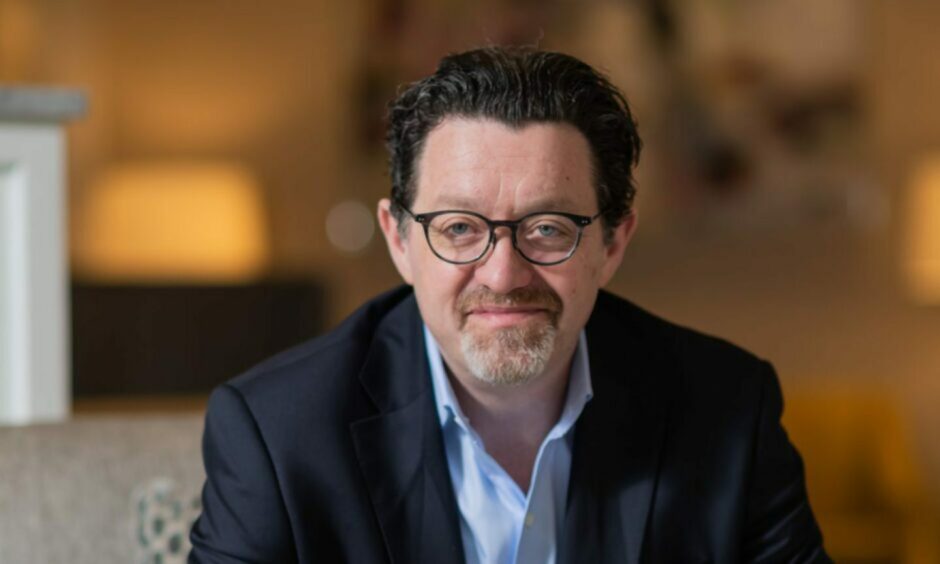
The Middle East’s investments in energy will see the region come to lead in the energy transition, Wood CEO Ken Gilmartin has said.
“There’s an absolute will to be leading the way,” Gilmartin told Energy Voice. “You can see it at Adipec, at COP28 next year. It’s very impressive what’s going on, how they can move – and how they can move fast. There’s a lesson there for the rest of the world.”
Gilmartin was talking on the sidelines of Adipec. Adnoc CEO Sultan Al Jaber opened the conference with a call to maximise production and minimise emissions. The Abu Dhabi state-owned company is working on plans to increase its oil and gas production, but also in emerging areas such as carbon capture and hydrogen.
New investments, new workers
Giving the example of carbon capture and storage (CCS), Gilmartin said there were discussions on this around the world – but some places where harder to get going than others.
“When you step back and see the vision in the Middle East, it’s staggering. We’re looking at feasibility studies, at FEEDs and here people are getting ready to deploy capital. It’s staggering how quickly that has come to the top of the agenda.”
Gilmartin gave the example of discussions around transportation of super critical CO2. “We’re answering and asking questions technically that haven’t happened before. Here, there’s the ability to go after the scale, it’s a little slower in the rest of the world.”
The combination of investments in energy production today, and new technologies for tomorrow, sets the Middle East up to lead the way, he said. “Europe, the US and other areas will lag,” Gilmartin said.
These investments in the energy transition will also go a way to securing the industry as an area for new workers. Oil and gas has “struggled as an industry to attract younger people”, Gilmartin said. Working on a CCS project can help change “the way the industry is being perceived and start telling that story a little better”.
Mixed talk
The Wood CEO compared the Abu Dhabi focus with political issues in places such as the US and UK, where windfall tax talk dominates discussions, rather than investments.
“The UK is trying to attract inward investment more than it had, its trying to become the place to do business,” the executive said.
Gilmartin noted that pressure in the UK, particularly from energy prices, was driving much of the pressure. At the same time as political pressure was mounting on the sector, there is also a newfound drive for energy security.
This drive, for energy security and energy transition, poses challenges in how to deploy, the CEO said.
Pace and inflation
“From a European perspective, regulations and politics make it a little more difficult. The underlying piece is now pace. All our clients are talking about pace, how do we do it quicker,” he said.
That push for speed is a “huge opportunity” for a company like Wood, he said.
However, as has been seen in recent months this push for new energy production is driving inflation. “It’s the first time I’ve seen inflation, and people talking about recession, when we’ve got almost full employment. It’s almost counterintuitive,” he said. “Capital is there, inflationary pressure is there.”
As a global company, Wood is also seeing wage inflation.
“When you have inflation, it gets played out on people who can’t afford it. We need to be aware of that as an industry. [Wood] has 35,000 people around the world. We need to look after them,” he said.
While political pressures may be slowing progress, Gilmartin said the financial mood was changing. “What you’re seeing from capital markets is an ability to be pragmatic,” he said. “There’s a need to realise that energy is important – and that’s maybe shifted a bit in the last year.”
Recommended for you


 © Supplied by Wood
© Supplied by Wood